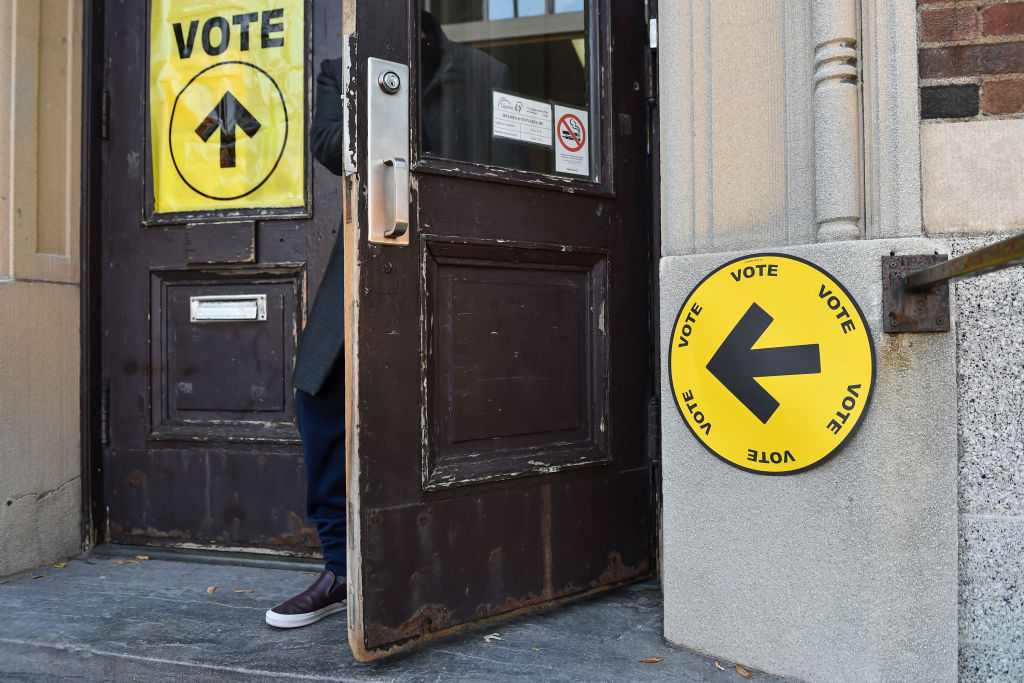Is there room for screen industry optimism in the federal election?
Industry stakeholders discuss what the Sept. 20 election will mean for the future of the Broadcasting Act.
 Canada’s screen sector is at a critical juncture ahead of Monday’s federal election as the nation determines which political party will lead the long-awaited modernization of the Broadcasting Act.
Canada’s screen sector is at a critical juncture ahead of Monday’s federal election as the nation determines which political party will lead the long-awaited modernization of the Broadcasting Act.
There is a sense of cautious optimism from industry stakeholders as Canada’s major political parties, including the incumbent Liberal Party, Conservatives and the NDP, have all included an intent to update the Broadcasting Act in their platforms.
 “I think something fundamental has changed with all the political parties,” Laszlo Barna (pictured, right), Pier 21 films founder and former eOne TV president, tells Playback Daily. “They recognize that, collectively, our industry has become a billion dollar industry that they cannot afford to turn their back on. I don’t think any politician would want to be known as the politician that let Canadian culture die.”
“I think something fundamental has changed with all the political parties,” Laszlo Barna (pictured, right), Pier 21 films founder and former eOne TV president, tells Playback Daily. “They recognize that, collectively, our industry has become a billion dollar industry that they cannot afford to turn their back on. I don’t think any politician would want to be known as the politician that let Canadian culture die.”
That optimism comes in the face of months of delay in passing Bill C-10, which was tabled by Minister of Canadian Heritage Steven Guilbault in November 2020 to modernize the Act. Following criticism from the opposing parties over concerns about freedom of speech, the review of the bill was temporarily suspended. While the Department of Justice determined the bill was in compliance with the Charter of Rights, the bill ultimately died on the Senate floor when the snap election was called.
Andrew Addison (pictured, left), VP, communications, marketing and membership at the Canadian Media Producers Association (CMPA), says that it is important to separate “political noise” from what the parties have promised in their platforms.
 “If you focus on the policy discussion and what the parties are saying, it is encouraging, because it seems that all the parties are receptive to discussing the issues and are committed to making meaningful changes to the Broadcasting Act, so it’s a reason to be optimistic,” he says.
“If you focus on the policy discussion and what the parties are saying, it is encouraging, because it seems that all the parties are receptive to discussing the issues and are committed to making meaningful changes to the Broadcasting Act, so it’s a reason to be optimistic,” he says.
The Liberal platform includes a promise to table new legislation around the Broadcasting Act. While all parties have made clear their intent to ensure web giants such as Google, Amazon and Netflix will contribute to the domestic industry, their methods differ. The Liberals’ Bill C-10 proposed bringing web giants into the regulatory system under a strengthened CRTC. The Conservative platform proposes requiring web giants to reinvest a portion of their gross revenue into original Canadian programming; if the companies fail to meet the minimum requirement within a year, the remaining portion would be given to the Canada Media Fund (CMF).
Others aren’t as optimistic. “A Conservative government will be harmful,” says Maureen Parker (pictured, right), executive director of the Writers Guild of Canada (WGC). “Ten years of [former Prime Minister Stephen] Harper nearly destroyed our industry and we weren’t allowed to speak publicly for fear of losing funding at the CMF or at Telefilm – anywhere – because we were constantly under surveillance with no freedom to speak.”
 Parker points to the Conservative party plan to provide regulatory relief to broadcasters, including their contributions to the CMF, as a signal that Canadian content that is written, directed and performed by domestic talent is at stake in the election. Especially at a time when stories from Canada’s Indigenous, Black and Asian populations are more crucial than ever before.
Parker points to the Conservative party plan to provide regulatory relief to broadcasters, including their contributions to the CMF, as a signal that Canadian content that is written, directed and performed by domestic talent is at stake in the election. Especially at a time when stories from Canada’s Indigenous, Black and Asian populations are more crucial than ever before.
She adds that without regulation broadcasters are unlikely to produce original Canadian content over foreign acquisitions, noting reduced advertising revenue for private broadcasters, which will result in reduced envelopes at the CMF. “It’s heartbreaking to see our best writers leave for the U.S., but they have to, because there is no work here,” says Parker, pointing to WGC figures that show the number of commissioned hours of Canadian content has dropped by double-digit percentages across the board.
The Liberals and the Conservatives are currently in a deadlock in election polls as of press time, signaling a strong possibility of another minority government. Parker says there’s little evidence from the parties that suggests a resurgence of the debates around Bill C-10 won’t happen again. “Everyone has a different definition of broadcasting reform and the Michael Geists of the world have not gone away,” she says.
Addison says regardless of the result the CMPA will be working with the elected government to help push the modernization of the Broadcasting Act through. “The one thing we’re focused on is ensuring the politics of another minority government doesn’t get in the way of smart policy and moving things forward. We’re going to be focused on reminding the parties of the commitments they’ve made and underscoring why this matters,” he says, pointing to the CMPA’s most recent Profile report, which shows Canada’s screen sector generated close to 250,000 jobs in 2019/20 and $12.2 billion in GDP.
While Bill C-10 is top of mind throughout the industry, organizations such as IATSE have hit the campaign trail to speak on behalf of Canada’s crew members on issues such as EI reform and the Canada Recovery Benefit. The answers have been published on their website in the lead-up to Monday’s vote.
“I think COVID brought a clear reality – a lot of people fall through the cracks [of the social safety net] and the traditional employer/employee relationship is not as prevalent as it used to be,” says John Lewis, director of Canadian affairs at IATSE, regarding the growing gig economy, adding that many of the “regulatory mechanisms in place” are predicated on those traditional models.
Lead photo by Minas Panagiotakis/Getty Images

 The definitive CDN broadcast and production resource.
The definitive CDN broadcast and production resource.










